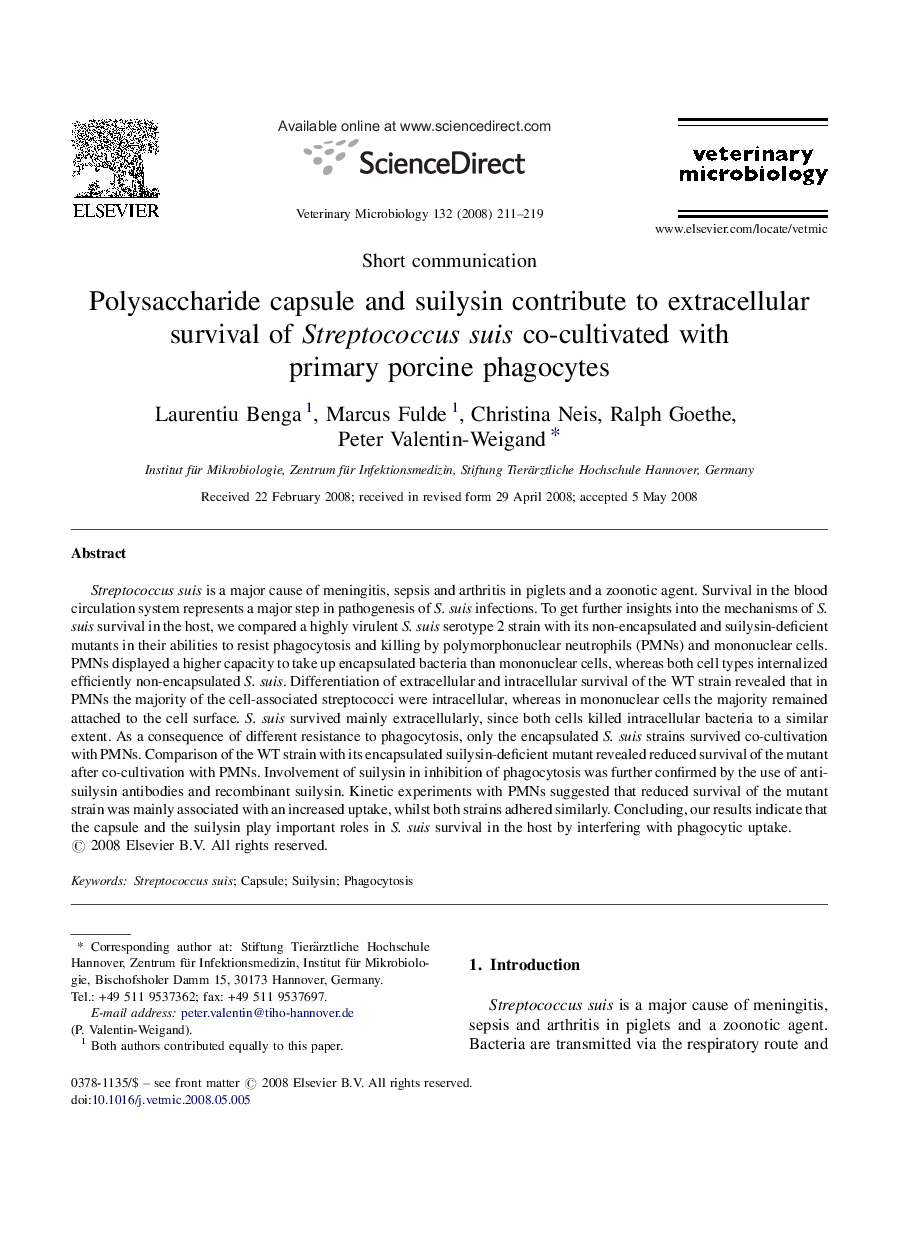| Article ID | Journal | Published Year | Pages | File Type |
|---|---|---|---|---|
| 2468739 | Veterinary Microbiology | 2008 | 9 Pages |
Streptococcus suis is a major cause of meningitis, sepsis and arthritis in piglets and a zoonotic agent. Survival in the blood circulation system represents a major step in pathogenesis of S. suis infections. To get further insights into the mechanisms of S. suis survival in the host, we compared a highly virulent S. suis serotype 2 strain with its non-encapsulated and suilysin-deficient mutants in their abilities to resist phagocytosis and killing by polymorphonuclear neutrophils (PMNs) and mononuclear cells. PMNs displayed a higher capacity to take up encapsulated bacteria than mononuclear cells, whereas both cell types internalized efficiently non-encapsulated S. suis. Differentiation of extracellular and intracellular survival of the WT strain revealed that in PMNs the majority of the cell-associated streptococci were intracellular, whereas in mononuclear cells the majority remained attached to the cell surface. S. suis survived mainly extracellularly, since both cells killed intracellular bacteria to a similar extent. As a consequence of different resistance to phagocytosis, only the encapsulated S. suis strains survived co-cultivation with PMNs. Comparison of the WT strain with its encapsulated suilysin-deficient mutant revealed reduced survival of the mutant after co-cultivation with PMNs. Involvement of suilysin in inhibition of phagocytosis was further confirmed by the use of anti-suilysin antibodies and recombinant suilysin. Kinetic experiments with PMNs suggested that reduced survival of the mutant strain was mainly associated with an increased uptake, whilst both strains adhered similarly. Concluding, our results indicate that the capsule and the suilysin play important roles in S. suis survival in the host by interfering with phagocytic uptake.
